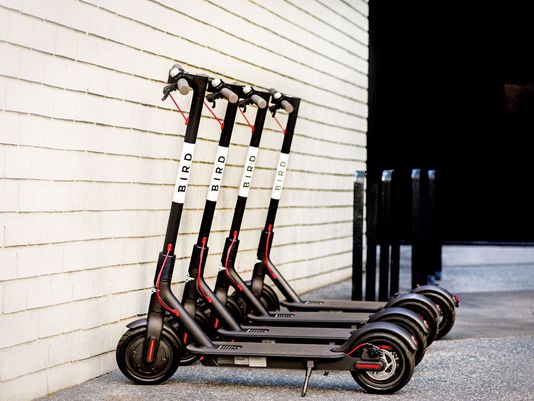On January 13, 2021 Ohio Governor Mike DeWine signed a law regulating electric scooters, making it clear that the popular mode of transportation from companies like Bird and Lime is here to stay. The law goes into effect April 15, 2021
The electric scooters whizzed into Ohio in 2018, seemingly appearing overnight in cities across the country. The scooters’ popularity quickly skyrocketed as a cheap and quick means of transportation, especially among young people. However, it was unclear whether the innovative (and disruptive) technology would survive long-term if cities and states began regulating their use.
The Ohio legislature weighed in passing House Bill 295 with little opposition. It reflects a compromise between scooter rental companies and local governments. The law places new requirements both on the companies, and on riders. For scooter rental companies like Bird and Lime, they must equip their scooters with front lights and rear reflectors for riders to utilize at night. The law also requires scooter rental services to maintain commercial general liability insurance with limits of up to $1 million per occurrence and $2 million in total.
On the consumer side, the law requires riders to be 16 or older to rent and ride an electronic scooter. Violators of the age restriction can be fined up to $150. The law also includes a statewide 20 mile-per-hour speed limit for scooters. Riders must yield to pedestrians, audibly signal before passing pedestrians, and use the front light and rear reflector when riding at night. The new law permits use of scooters on bicycle paths and lanes, though individual cities and parks can withdraw this permission, as well as add additional regulations or ban electric scooters altogether.
While the Ohio legislature is at the forefront of getting electric scooter legislation on the books, California and New York are among the other states who have been proactive about regulating scooter use.

